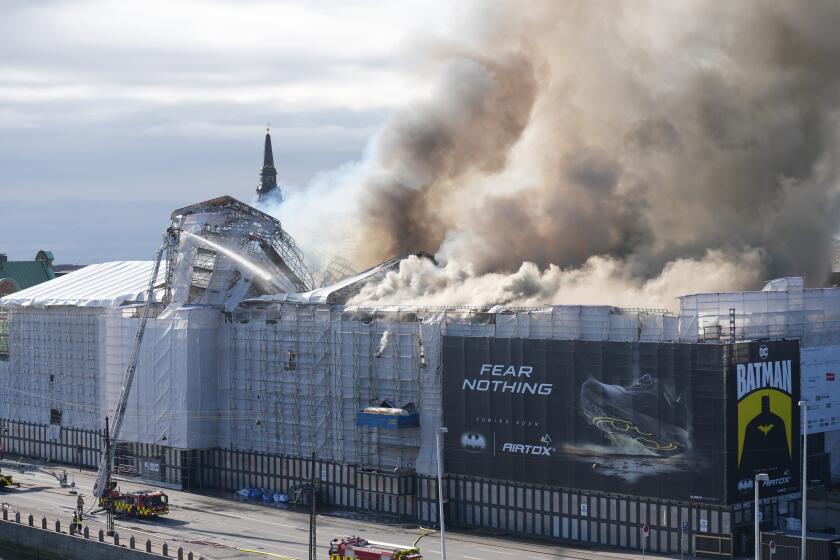Venezuela elections weaken Chavez’s hold
Despite a strong showing by opposition candidates in national elections, President Hugo Chavez’s supporters maintained control of Venezuela’s Congress, according to preliminary results released Monday.
Chavez supporters won at least 96 of 165 seats in the elections Sunday, compared with at least 61 seats won by opposition candidates with the Democratic Unity Table coalition, based on partial results from the National Electoral Council. A splinter socialist party called the PPT won at least two seats, and six seats remained up in the air.
The results, if confirmed when final tallies become available, will leave Chavez without the two-thirds congressional majority he has enjoyed in recent years and which gave his government automatic approval of proposals.
Both sides displayed mixed reactions to the partial results, with some declaring victory and others expressing disappointment.
Chavez said his United Socialist Party of Venezuela, or PSUV, had won an “ample majority.”
Ramon Guillermo Aveledo, a spokesman for the opposition group, said the results meant Chavez would have to negotiate on key issues.
Chavez will keep an assembly majority even if his candidates lose in total votes thanks to an electoral reform law passed last year that redrew districts, giving more representation per capita in states where he has strong support.
Several analysts said the vote reflected the depth of Venezuelans’ dissatisfaction with Chavez, who many blame for rising crime, food shortages, frequent power outages and interruption of water service.
“There have been so many things that have gone wrong in Chavez’s government lately that we knew the election might go against him,” said Caracas-based political consultant Maruja Tarre, who advises several multinational companies. “But they showed how high the anger is, even among poor constituents who in the past supported him.”
The two highest vote-getters nationwide were opposition candidates Maria Corina Machado and Enrique Mendoza. Both are longtime Chavez critics who ran in Miranda state under the Democratic Unity Table umbrella group . At a news conference in Caracas on Monday, Machado said her victory was evidence of voters’ rejection of “Cuban-style communism.”
Both Machado and Mendoza are already being talked about as potential presidential candidates in two years. Chavez has indicated that he will run for reelection.
“The elections reveal that Chavez is highly vulnerable in 2012. The deterioration in the country’s security and economic situation has hit Chavez’s own constituency — the very poor — the hardest,” said Michael Shifter, president of Washington-based Inter-American Dialogue think tank. “Now the opposition is back in the political game, and appears to be more united than they were in the past.”
In what was widely criticized as a glaring political misstep, Chavez opponents boycotted the 2005 congressional elections, thus ceding near 100% control to Chavez and his allies. Chavez, who took office in 1999, used that to solidify control of other branches of government, including the judiciary and the electoral council.
He also moved against several political adversaries. He disqualified popular Chacao Mayor Leopoldo Lopez from running for office for alleged complicity in a 2002 coup attempt against Chavez. He also jailed former Defense Minister Raul Baduel on corruption charges. Those actions and others had the effect of clearing the political field for Chavez by reducing credible opposition voices.
Shifter said the opposition lacks a leader to galvanize the public.
“The opposition still has to find a leader who can effectively convey a vision for a post-Chavez Venezuela,” Shifter said. “Chavez’s governance has been dismal by all measures, yet he probably remains the most popular political figure in Venezuela.”
Special correspondents Mogollon reported from Caracas and Kraul from Bogota.
More to Read
Start your day right
Sign up for Essential California for news, features and recommendations from the L.A. Times and beyond in your inbox six days a week.
You may occasionally receive promotional content from the Los Angeles Times.






